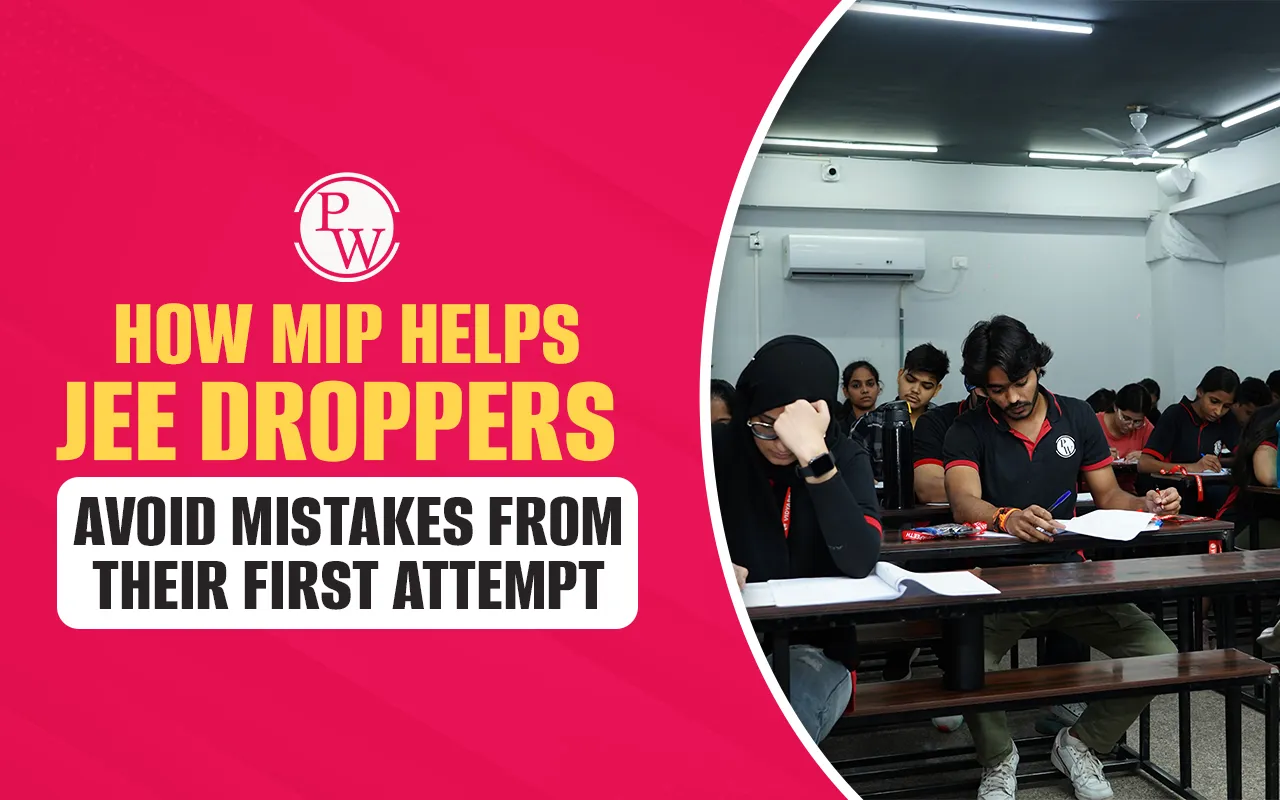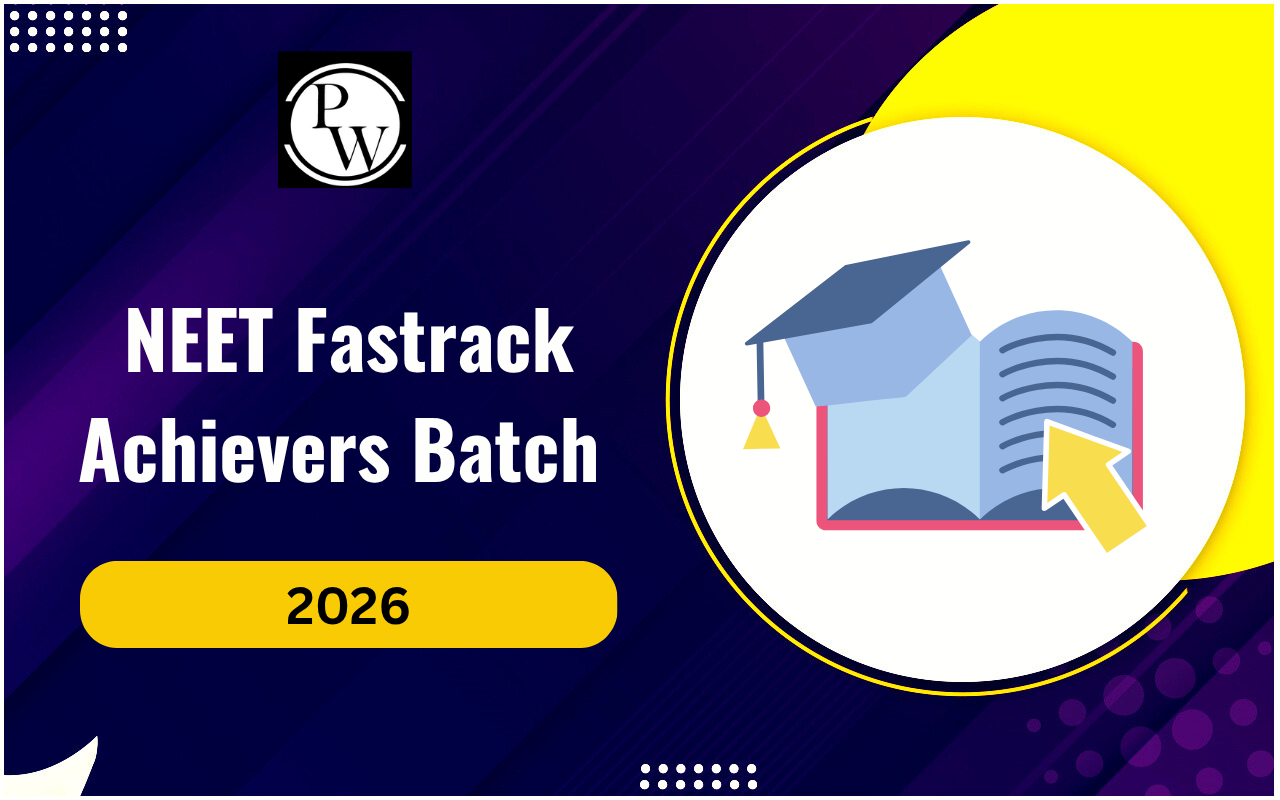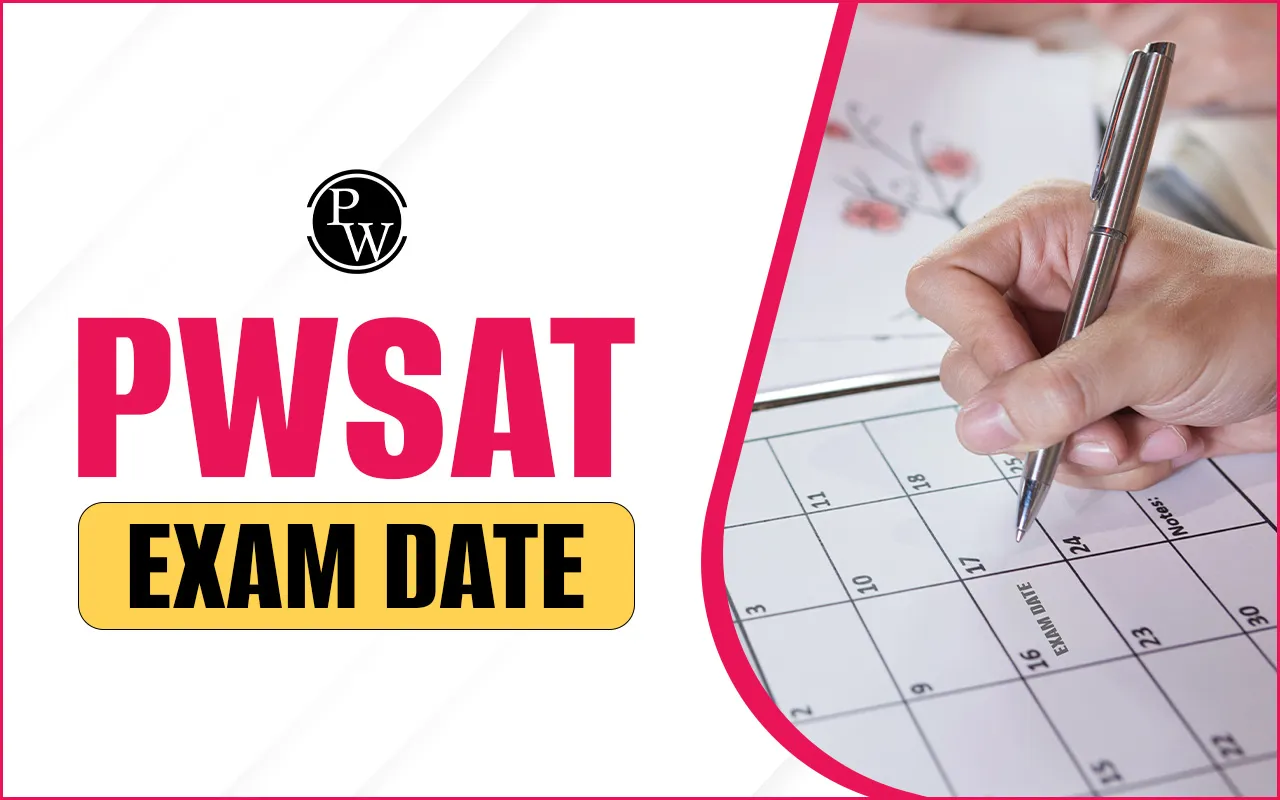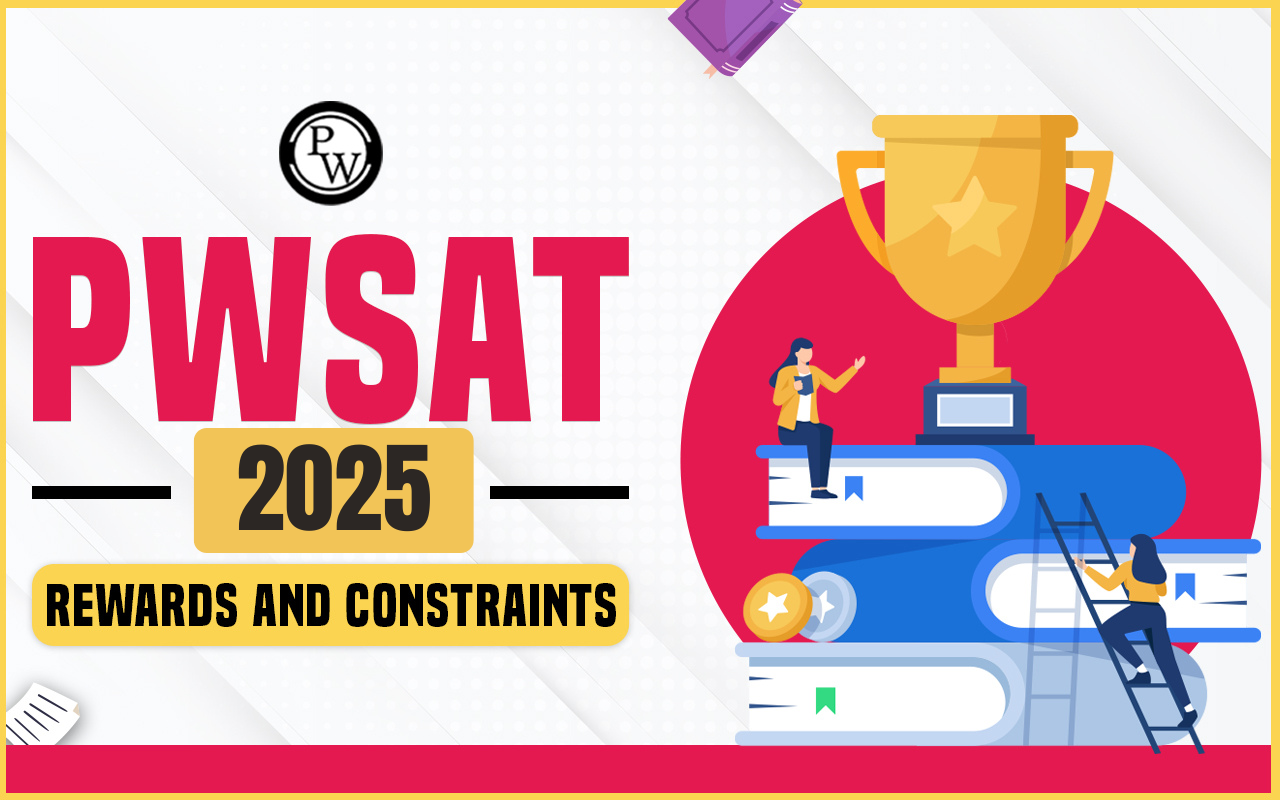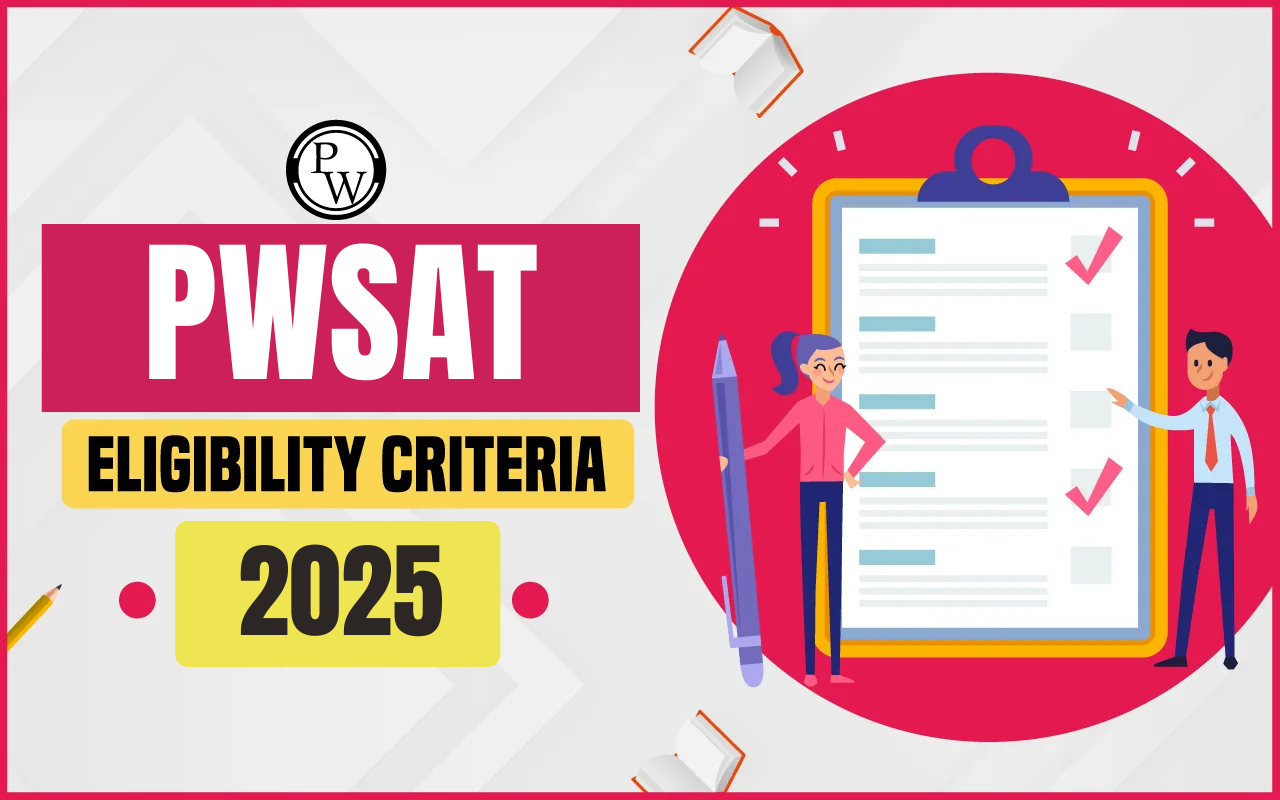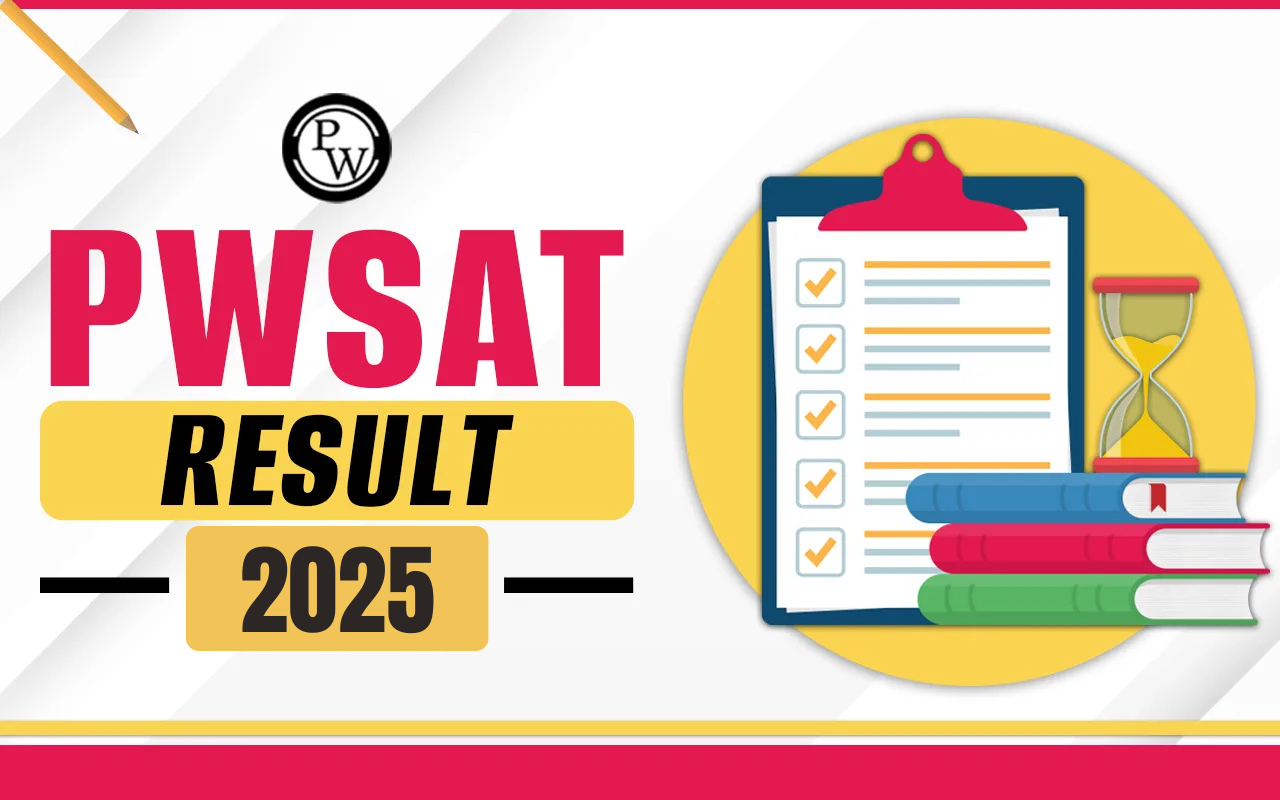
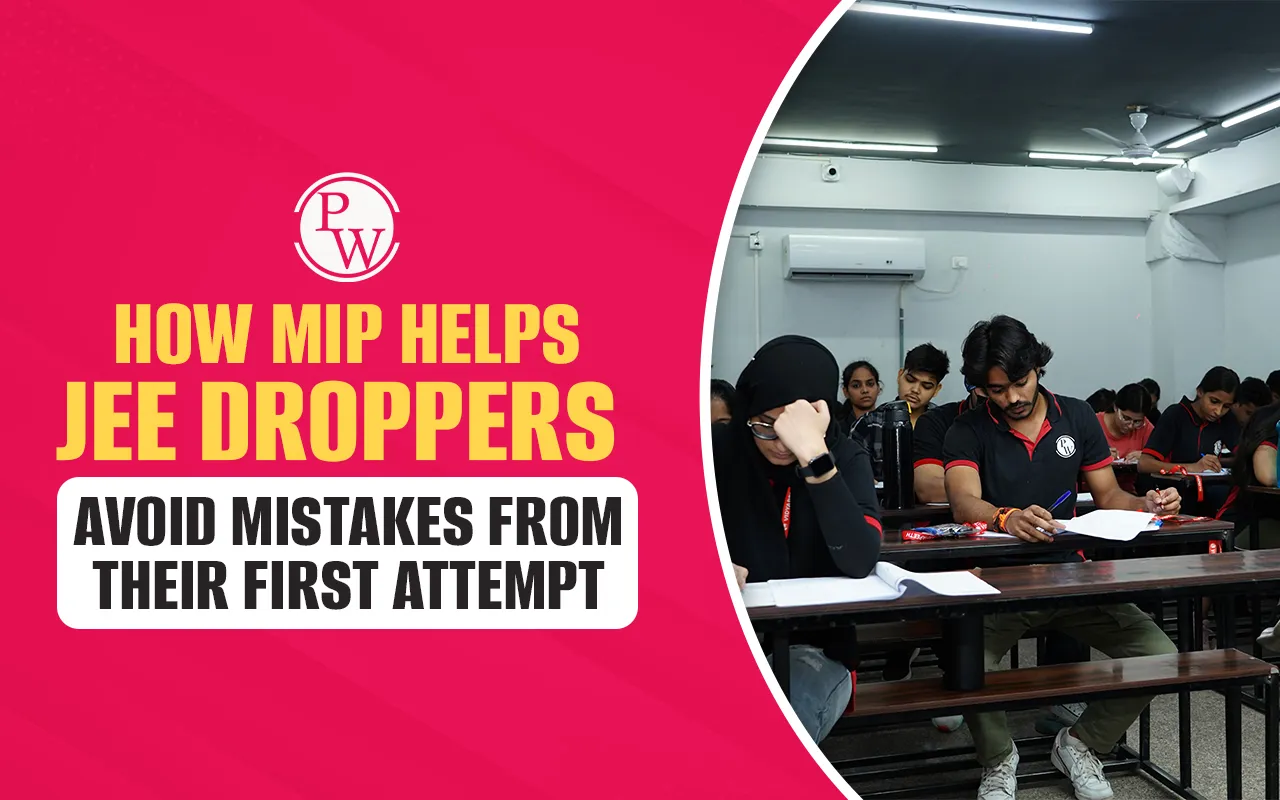
JEE Improvement Program for Droppers: PW’s Marks Improvement Program (MIP) is a specialized JEE improvement program for droppers created to address the mistakes students often make in their first attempt. Many JEE aspirants struggle with poor revision planning and lack of exposure to the real test environment. MIP bridges these gaps by combining offline test practice, national-level benchmarking, doubt support, and NTA-modeled practice.
The program is available for both PW online batch students and outside aspirants. Those outside the PW ecosystem receive a detailed planner to prepare independently and appear in scheduled offline tests.
Why an Improvement Batch is Essential for JEE Droppers?
An improvement batch for JEE droppers provides targeted resources that focus on refining concepts, practicing regularly, and identifying weak areas. Unlike freshers, droppers already know the syllabus but need a more disciplined approach and consistent evaluation.
Key benefits of improvement batches include:
-
These tests focus on preparing each chapter well, allowing JEE droppers to have a strong foundation of concepts in smaller portions before moving to full syllabus preparation.
-
It covers the entire JEE syllabus; these simulate the real exam environment and help students practice effective time management.
-
It is conducted in NTA-like exam conditions. It replicates the actual CBT interface, helping students manage exam pressure.
-
Dropper batches are given the highest number of tests (up to 40 for JEE), ensuring repeated practice, evaluation, and targeted score improvement.
MIP acts as a structured improvement batch that ensures droppers improve their chances in JEE 2025 by addressing all the weak areas.
Class-wise Test Bifurcation for JEE Improvement Program
MIP offers a systematic test distribution tailored for 11th, 12th, and dropper batches of JEE. This ensures that students prepare stage-wise and cover the entire syllabus with proper revision cycles.
|
Class-wise Test Bifurcation for JEE Improvement Program |
|||
|
Test Type |
11th JEE |
12th JEE |
Dropper JEE |
|
AITS Part Test |
6 |
4 |
5 |
|
AITS Full Test |
1 |
14 |
12 |
|
Real Full Test |
4 |
4 |
4 |
|
MIP Part Test |
11 |
7 |
13 |
|
MIP Full Test |
1 |
3 |
6 |
|
Total Tests |
23 |
32 |
40 |
Explanation:
-
Part Tests focus on chapter-wise mastery.
-
Full Tests cover the entire syllabus and simulate JEE.
-
Real Tests replicate the actual NTA exam interface and environment.
-
Dropper Batches receive the maximum number of tests (40 for JEE), ensuring repeated practice and evaluation.
Droppers benefit from the highest number of tests (40). This ensures more practice and exposure.
AITS – The JEE Marks Booster for Repeaters
The All India Test Series (AITS) is an integral part of MIP and serves as a JEE marks booster for repeaters. It provides national-level competition with real exam-like conditions. Some features of AITS:
-
Students receive an All India Rank (AIR) after each test. This helps them understand their position among aspirants.
-
Detailed reports show accuracy, speed, strong areas, and weak spots, so students can refine their preparation strategy.
-
Since tests are conducted offline in CBT mode, students get the same look and feel as the real JEE exam.
-
Questions are prepared by senior faculty in line with the latest NTA exam pattern.
-
Frequent part tests and full tests ensure students are revising systematically, not randomly.
-
After every test, students get detailed video solutions to clear concepts and prevent repeating mistakes.
Real Test – Simulating the NTA Experience for Droppers
The PW Real Test Series is designed to replicate the exact environment of JEE (CBT mode). It prepares droppers mentally and technically for the actual exam.
Key aspects of Real Tests:
-
Just like the NTA exam, students are issued admit cards for Real Tests. This creates the same seriousness and psychological preparation needed for the final exam.
-
Tests are conducted at offline centers designed to replicate exam halls, helping students practice under real conditions.
-
After every Real Test, students receive a thorough breakdown of their performance to spot errors and work on improvements.
-
For extra practice, the same papers are available on the PW App, so students can retake them and check progress over time.
Why Choose MIP JEE Coaching for Droppers 2025?
Unlike regular test series, MIP provides a complete improvement ecosystem:
|
MIP JEE Coaching for Droppers 2025 |
||
|
Features |
MIP (Test + Real Test) |
MIP (Test + Doubt + Real Test) |
|
NTA-Simulated Real Tests |
Yes |
Yes |
|
Offline Exam Hall Experience |
Yes |
Yes |
|
Admit Cards for Offline Tests |
Yes |
Yes |
|
Re-attempt Papers on PW App |
Yes |
Yes |
|
Detailed Test Analysis |
Yes |
Yes |
|
PAN-India All India Test Series (AITS) |
Yes |
Yes |
|
Mentorship Sessions from Rankers |
Yes |
Yes |
|
Weekly Offline Doubt Support (8 hrs) |
No |
Yes |
Students who want only structured tests can opt for MIP (Test + Real Test). Droppers who need personalized doubt solving should choose MIP (Test + Doubt + Real Test).
MIP Pricing Plans for JEE 2025 Dropper Improvement Course
MIP is designed to be cost-effective compared to other offline dropper batches.
|
MIP Pricing Plans for JEE 2025 Dropper Improvement Course |
||
|
Program |
Listing Price (with GST) |
New Payable Price (with GST) |
|
MIP (Doubt + Test + Real Test) – 11th/12th/Dropper JEE |
₹23,000 |
₹13,999 |
|
MIP (Test + Real Test) – 12th and Dropper JEE |
₹14,000 |
₹7,499 |
|
MIP (Test + Real Test) – 11th JEE |
₹11,000 |
₹5,499 |
This affordability makes it a good option for aspirants seeking a structured JEE 2025 dropper improvement course.
JEE Dropper Year Plan with MIP
JEE dropper year plan provided under MIP follows a phased approach, ensuring step-by-step improvement:
-
Initial Phase (0–2 months): Focus on part tests to revise chapters systematically. This phase is about identifying knowledge gaps and mastering fundamentals.
-
Mid Phase (3–6 months): Students begin regular AITS and Real Tests during this phase. The focus shifts to accuracy, exam temperament, and strategy refinement, with feedback loops guiding the improvement process.
-
Final Phase (last 3 months): This is the most crucial phase. Students take full syllabus tests in an exam-like environment, revise thoroughly, and clear all doubts through personalized sessions. By the end, they are mentally and academically prepared for JEE.
With this structured plan, MIP ensures that droppers don’t repeat their first-attempt mistakes.
JEE Improvement Program for Droppers FAQs
What is the JEE improvement program for droppers?
How does the JEE 2025 dropper improvement course help?
What is the benefit of an improvement batch for JEE droppers?
Is there a JEE marks booster for repeaters in 2025?
Which is a good JEE coaching for droppers 2025?

